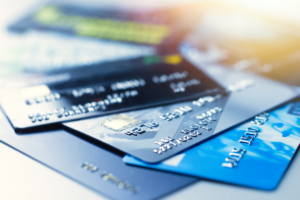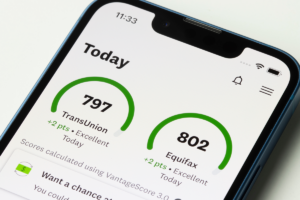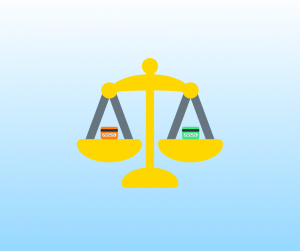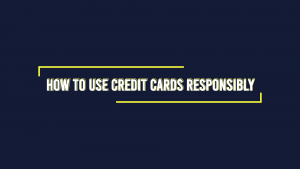How to Build Credit with Secured Credit Cards

Bad Credit Car Loans—What to Do & Why
08/10/2023
How to Reach Your Savings Goals
08/25/2023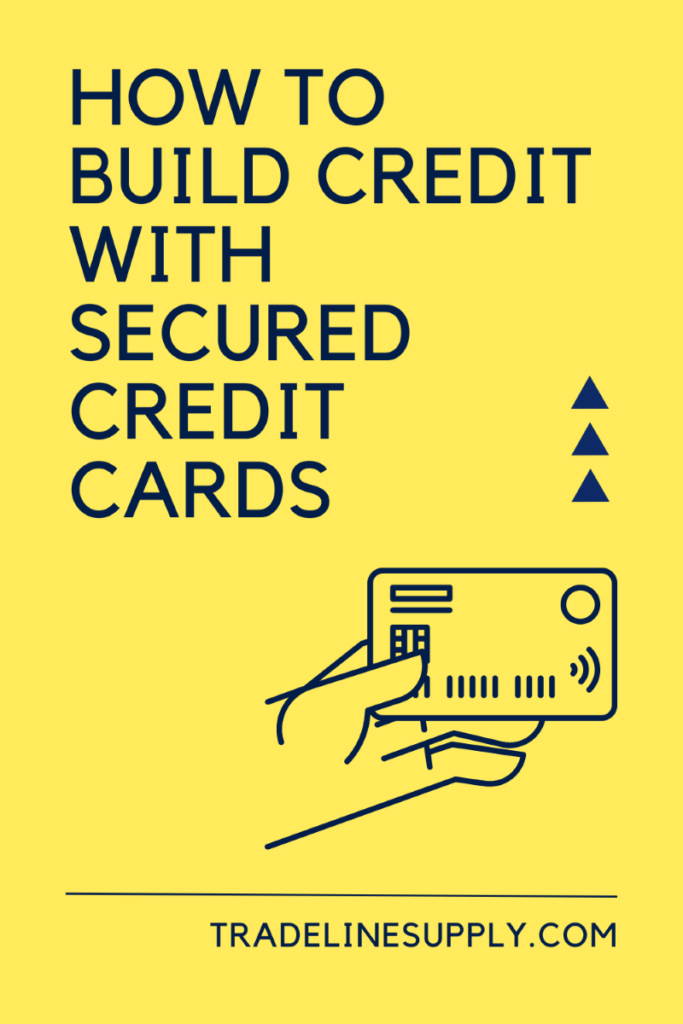 Whether you have bad credit or no credit, a secured credit card might be the solution you need to improve your credit. While a secured credit card isn’t the right choice for everyone, it is a worthwhile option for some trying to build their credit.
Whether you have bad credit or no credit, a secured credit card might be the solution you need to improve your credit. While a secured credit card isn’t the right choice for everyone, it is a worthwhile option for some trying to build their credit.
Let’s explore what secured credit cards are, how they compare to unsecured credit cards, the downsides of these cards, and tips to consider before opening a secured credit card.
Secured Credit Cards—Different Than Unsecured Credit Cards
At first glance, a secured credit card might seem like every other credit card. Although both unsecured credit cards and secured credit cards allow you to make purchases with the convenience of plastic, key differences set these types of credit cards apart.
Here’s a closer look at secured credit cards and unsecured credit cards.
Secured Cards
What They Are
A secured credit card is a type of credit account that requires an upfront cash deposit. In many cases, the upfront deposit serves as your initial credit limit. For example, if you make a $100 security deposit, that might be your initial credit limit.
If you don’t make your payments, the credit card issuer can seize this collateral deposit. Although there is some risk involved, making a cash deposit gives credit card issuers more peace of mind. With that, it’s often easier to get approved for a secured credit card than an unsecured credit card.
As you make payments to your secured credit card account, you have an opportunity to build credit. Many secured credit card issuers will report your payment history to the credit bureaus. Since your payment history accounts for 35% of your FICO score, consistently making on-time payments to your secured credit card account will lead to a higher credit score.
But keep in mind there is still a danger of hurting your credit score with a secured credit card. If you don’t make on-time payments to your secured credit card account or if you max out the credit limit, you could end up hurting your credit score.
When you close a secured credit card account in good standing, the issuer will refund your deposit. However, you will not get your deposit back if you default on your payments.
Depending on the credit card issuer, you can often use your secured credit card at a wide range of retailers. As you use the card, you can make on-time payments and build your credit score.
Secured Credit Cards vs. Debit Cards
Since you have to make a deposit, a secured credit card might seem similar to a debit card or prepaid card. But secured credit cards and debit cards are very different financial tools. So, what makes a secured credit card different from a debit card? The key difference is that secured credit cards give you an opportunity to build credit. While debit cards let you spend up to the value of your checking account, they are not an extension of credit and do not report account information to the credit bureaus (unless the account goes into collection).
Who Are They Right For?
A secured credit card isn’t the right fit for everyone. If you already have a solid credit score, you likely don’t need a secured credit score to improve it. But if you have bad credit or no credit, a secured credit card could be an easy entry point into credit building.
Many high-risk borrowers and others struggling to build their credit history might find what they are looking for in a secured credit card. Many issuers are happy to approve you for a secured credit card as long as you have the funds required for a deposit.
But even if you want to build credit, a secured credit card isn’t a good fit if you won’t be able to keep up with the monthly payments. If the security deposit will wipe out all of your savings, you might want to hold off on opening a secured credit card. If you have enough savings to fund the deposit and keep up with your monthly payments, then a secured credit card might be a good fit.
Also, consider your ability to manage a payment deadline. If you struggle to remember deadlines, make sure to set up automatic payments. Otherwise, you might accidentally hurt your credit by missing a payment.
Unsecured Credit Cards
When you think of a credit card, your mind might naturally jump to the unsecured version. Unlike secured credit cards, an unsecured credit card doesn’t require a security deposit. Instead, approved borrowers will receive access to a credit limit, which is determined by various factors such as their credit scores and income.
Typically, unsecured credit card issuers prefer to work with borrowers who have good credit scores. If you have good enough credit to qualify, you can still use unsecured credit cards to further improve your credit score. After all, you’ll have an opportunity every month to make on-time payments, which play a big role in your score.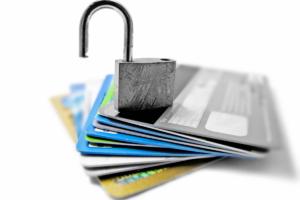
What They Are
Unsecured credit cards don’t require a security deposit. If you are approved for an unsecured credit card, the credit card issuer will set a credit limit. As the borrower, you can spend up to the credit limit. You’ll have the option to pay off your balance over time.
Although it is tempting to only make the minimum monthly payment, credit cards are notorious for having high interest rates attached to your balance. With that, a relatively small amount credit card balance can spiral into a debt problem quickly. If possible, pay off your balance in full at the end of each month. Otherwise, you could get stuck in a mountain of credit card debt.
As you make your payments, the credit card issuer will report your payment history to the credit bureaus. If you consistently make on-time payments to your credit card, you’ll see your credit score rise over time. But if you miss payments or max out your credit card, your credit score will suffer.
Who Are They Right For?
If you want to open an unsecured credit card, you’ll likely need a credit score that is at least fair. But some unsecured credit cards, especially top-tier rewards credit cards, are reserved for borrowers with excellent credit.
If you meet the qualifications for an unsecured credit card, the right credit card could give some padding to your bottom line in the form of rewards. For example, a top-end rewards credit card might help you cover travel costs or pay for things with your earned cash back.
As you use your unsecured credit card, you can improve your credit score by making on-time payments. However, an unsecured credit card might prove to be an irresistible temptation to overspend. After all, you can spend up to the credit limit without making a deposit.
If you aren’t confident in your ability to avoid overspending, then an unsecured credit card might not be the right fit for you. But if you are comfortable spending within your means, then an unsecured credit card likely won’t get you into trouble.
Credit Bureau Reporting Essentials
If you want to use a secured credit card to build your credit score, it’s essential that the credit card issuer reports the account to the credit bureaus. Otherwise, you won’t have any real chance of building credit. Instead, you are stuck with a complicated method for spending on plastic.
Before applying for a secured credit card, confirm that it reports to the credit bureaus. If the credit card issuer doesn’t report your payment information to the credit bureaus, it’s not worth getting this card because it won’t build your credit.
The three major credit bureaus include Equifax, Experian, and TransUnion. If possible, opt for a secured credit card that reports your payment activity to all three of these credit bureaus.
Downsides of Secured Credit Cards
As with all financial products, there are also some downsides attached to secured credit cards. Here’s what to keep in mind.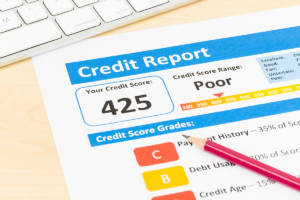
- Fees: Many secured credit cards come with fees attached. A few to keep in mind include application fees, processing fees, and annual fees.
- Deposit required: A secured credit card requires an upfront deposit, which is often hundreds of dollars. For many, it may be a challenge to come up with these funds.
- Interest rates: If you carry a balance on your secured credit card, high interest rates make it easy for your debt to grow quickly.
- Lower credit limits: In many cases, your credit limit is equal to your upfront deposit. With that, credit limits are often on the lower end. If you want to make a major purchase with your credit card, the low credit limit could get in the way.
- Potential to hurt credit score: A secured credit card is a credit product. If managed incorrectly, it could hurt your credit score. Specifically, a secured credit card could hurt your credit score if you don’t make on-time payments consistently.
While these downsides won’t be dealbreakers for everyone, some might find that the disadvantages of secured credit cards are too much for their financial situation. Carefully consider the drawbacks before jumping in.
Who Benefits from Secured Credit Cards?
Anyone who wants to build their credit from nothing, or from a bad start, can find benefits in a secured credit card. Although the upfront deposit may be an inconvenience for your wallet, it gives potential credit card issuers confidence in approving you for the card.
If you are able to manage the credit card payments, a positive payment history can help improve your credit score.
Tips to Find the Best Secured Credit Card
Want to use a secured credit card to build credit? Here are some tips to consider when picking out the best secured card for your situation.
- Credit bureau reporting: Not all secured credit card issuers will report your payment history to the credit bureaus. Without this critical reporting, none of your on-time payments will have a positive impact on your credit score. Before applying for a secured credit card, confirm that it offers credit reporting.
- Choose a deposit that makes sense: As you shop around, you will find a range of deposit requirements. Many cards have a required deposit of several hundred dollars. It’s important to find a card with a deposit that suits your budget. If the deposit completely wipes out your savings, that leaves you vulnerable.
- Fees: Most credit cards come with a long list of fees. But some credit cards offer a more reasonable fee structure than others. Since no one wants to pay more in fees, read the fine print and confirm you are comfortable with the fees before signing up.
- Upgrade options: For many secured credit card users, potential access to an upgraded unsecured credit card is an option worth pursuing. But not all credit card issuers offer a straightforward path from a secured credit card to an unsecured credit card.
Don’t settle for the first secured credit card that crosses your path. Instead, weigh out the options to find the right secured credit card for your unique situation. You’ll generally want to look for low fees, a reasonable deposit, and robust reporting to the credit bureaus.
How to Use a Secured Credit Card to Build Your Credit
If you are ready to open a secured credit card, that’s only the first step toward building credit. You’ll need to use your secured credit card wisely to see your credit score rise.
Here’s a closer look at how to build your credit with a secured credit card:
- Read the fine print: Credit card agreements come with plenty of fine print. It’s smart to read through the fine print to avoid any unpleasant surprises. Pay attention to any fees that might throw a wrench in your spending plans.
- Start with a deposit you can afford: Some secured credit cards may allow you to make a deposit worth thousands of dollars. But that’s not necessary to start building credit. It’s more important to make a deposit that you can easily afford. Otherwise, you might stretch your finances too thin.

- Make on-time payments: Payment history is the most important factor in your credit score. It’s critical to consistently make on-time payments to your secured credit card. If you miss payments, you will see your score fall.
- Use automatic payment options: Many secured credit card issuers offer an automatic payment option. Even if you think you’ll remember the payment due date, consider taking advantage of autopay. It’s an easy way to avoid an accidental late payment.
- Keep your credit utilization low: You can calculate your credit utilization ratio by dividing your credit card balance by your credit card limit. For example, if your credit card balance is $100 and your credit limit is $500, then your credit utilization ratio is 20%. Generally, the best utilization ratio to aim for is less than 10% for your FICO scores and less than 30% for your VantageScores.
- Monitor your credit score: Hopefully, you’ll see your credit score increase over time. If your credit score is dropping or staying stagnant, take a closer look at your credit reports. Confirm that the payments you’ve made are showing up on your credit reports. If you spot a mistake, report it to the credit bureaus right away.
FAQ:
Have questions about building credit with secured credit cards? We have answers.
How Quickly Will a Secured Card Build Credit?
As with all credit-building methods, it takes time to see results. If you don’t have a credit history at all, you should expect to wait at least six months before seeing any impact on your credit. But if you have a poor credit score, improvements might be visible within a few months.
As you build credit, it’s important to be patient throughout the process. It will inevitably take time to build your credit with a secured credit card. Keep making on-time payments to make forward progress.
What Do You Need to Open a Secured Credit Card?
If you want to open a secured credit card, you must provide a Social Security Number or Taxpayer Identification Number. Without one of these numbers, the credit card issuer won’t be able to report your payment information.
Additionally, be prepared to provide the upfront security deposit. Most credit card issuers will give you a specific window to transfer the funds within. If you don’t make the transfer within the window, the credit card issuer might revoke your approval.
How Much Should I Spend on a Secured Credit Card Each Month?
Regardless of the type of credit card you have, you should only spend what you can afford to pay back each month. If you cannot afford the purchase, do your best to avoid putting it on your credit card. Additionally, you should try to keep your credit utilization ratio low.
If you’re using the card solely for credit-building purposes, consider putting a small recurring purchase on the card, such as a monthly streaming service bill. With automatic payments set up, you’ll get the credit benefits of on-time payments every month without having to worry about paying off a large credit card balance.
Conclusion: It’s Possible to Build Credit with Secured Credit Cards
A secured credit card can be a useful tool for anyone looking to build their credit score and a stepping stone to opening other types of primary accounts. As you dive into the world of secured credit cards, pay attention to the terms and confirm that an issuer provides the credit reporting you need before submitting an application.
Although it will take time to see results, a solid record of on-time payments should improve your credit score.

